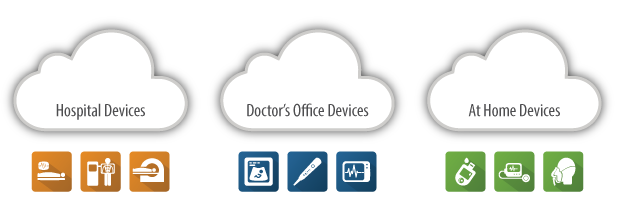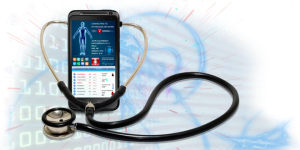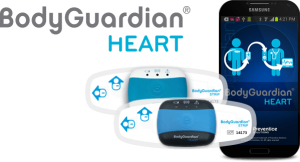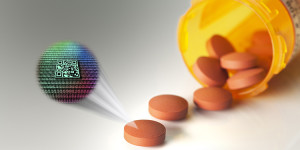How is the IoT (Internet of Things) revolutionizing Healthcare?

As Abraham Lincoln once said, “The best way to predict your future is to create it”. This is a particularly powerful and prophetic statement especially when speaking about the Internet of Things; some even call it the ‘Medical’ Internet of Things.
The ‘Medical’ Internet of Things

The Internet of Things is defined as a “proposed development of the Internet in which everyday objects have network connectivity, allowing them to send and receive data”. Many dismiss the capacity of the Internet of Things to just the rudimentary exchange of data. However, for start-ups and established companies within this sector, IoT is transforming and improving the operation and health services of many hospitals and health systems.
So, how is the healthcare arena being impacted by this awesome technological revolution? Well, according to a new report by MarketResearch.com “the healthcare Internet of Things market segment is poised to hit $117 billion by 2020”. (https://www.prnewswire.com/news-releases/marketresearchcom-iot-deployments-in-healthcare-to-reach-117-billion-by-2020-says-new-mind-commerce-report-300070129.html) According to Bruce Harpham, IoT’s technology has already made powerful in-roads in the medical sphere, including revolutionizing out-patient monitoring and the area of drug management (https://www.cio.com/article/2981481/healthcare/how-the-internet-of-things-is-changing-healthcare-and-transportation.html).
Patient Monitoring
One example of IoT technologies contribution to the medical arena is a device that monitors a patient’s condition outside of a health facility: the Body Guardian Heart Remote Monitoring System allows medical practitioners to effectively monitor their patient’s condition outside of the four walls of a medical facility. This system provides healthcare teams with key biometric data, allowing their patients to live ‘cordlessly’ 
Drug Management
Another prevalent area in the medical area where IoT technology is making a positive impact is in the area of drug management. One of the major problems is high cost of introducing new drugs into the system. As evidenced from a report by Joe Di Masi, a total of 2.6 billion dollars is spent on the regulation and marketing of new drugs. (https://csdd.tufts.edu/news/complete_story/pr_tufts_csdd_2014_cost_study)
A growing list of IoT companies are focusing on minimizing this cost, and mitigating the destructive influences of the fraudulent drug industry. The ‘black market’ causes economic damage and tarnishes the confidence of producers, consumers and regulators. Not to mention the potential detrimental effects that fraudulent drugs can have on patient health.

More recently, companies such as PharmaTech and TruTag Technologies have innovated edible IoT “smart capsules” that are able to aid in the monitoring of prescription regulation and health issues themselves. (https://www.cio.com/article/2981481/healthcare/how-the-internet-of-things-is-changing-healthcare-and-transportation.html)
The ‘medical internet of things’ is already revolutionizing healthcare provision, new drug production and distribution. The new wave of companies and technologies which prioritize secure data handling can not only change the experience for healthcare providers, but even more crucially enrich the healthcare experiences of patients themselves.
References
https://csdd.tufts.edu/news/complete_story/pr_tufts_csdd_2014_cost_study
